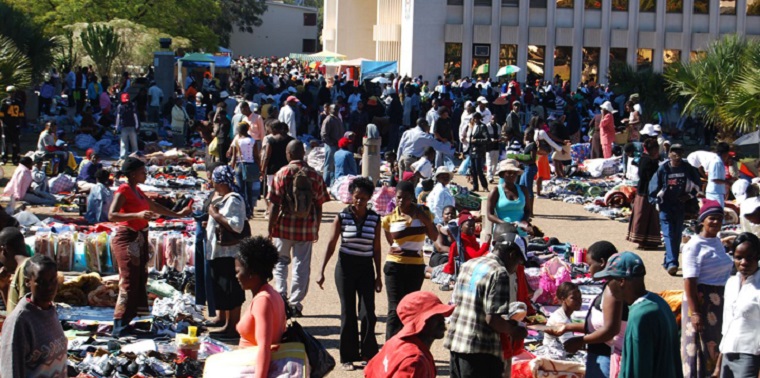THE Diaspora has become a progressively vital fundamental in Zimbabwe, a huge reservoir for human and financial capital coupled with being a commercial bridge between itself and this country.
The value of the Diaspora to Zimbabwean economy goes beyond remittances, in some instances it extends to intellectual capital and social capital.

The African Export-Import Bank (Afreximbank) recognizes the invaluable contribution of the Diaspora to the continent’s structural transformation aspirations as enshrined under the African Union’s Agenda 2063.
In the light of that, Zimbabwe participated 6th Global Business Forum for Africa which was held in Dubai from 13-14 October and the objective of the participation was to promote the country as an investment destination choice.
Government through the Zimbabwe Investment and Development Agency (ZIDA) has urged the private sector and citizens in the diaspora to grab the various projects on offer on a win-win partnership basis.
The Entrepreneurial Magazine had an exclusive interview with United Kingdom based entrepreneur Humphrey Bvuma who runs an enterprise called Savanna Agro Industries, which provides an end-to-end supply chain solutions to the agricultural and horticultural industry. Due of the nature of the enterprise’s agricultural activities, Bvuma’s prospects of expanding his business in Zimbabwe are high.
“The reasoning behind this planned expansion is because I am currently involved in primary agricultural production. Given the limited margins of profit in producing crops that are in essence raw materials we decided to add value to our processes by venturing into agro manufacturing. Such value addition, will boost our profit margins as we look to export our products to the regional market and beyond,” Bvuma told The Entrepreneurial Magazine.
A classical illustration of this value addition he is planning is the processing of chicken droppings from the enterprise’s poultry operations into organic fertilizer pellets that will be packaged and exported abroad, thus contributing to Zimbabwe’s foreign currency reserve.
“Due to the increasing prices of fertilisers especially in Europe, the organic chicken pellet fertilisers exported to Europe will represent a margin of profit that is well in excess of 1000% were the chicken droppings to be sold locally as an unprocessed product,” Bvuma said.
Bvuma called on the current administration to create a permanent conducive environment for diaspora citizens to invest back home without fear of losing such investments.
“Currently, investing in Zimbabwe by Diasporans is done by serious risk takers who, in spite of the clear economic challenges have identified opportunities that are worth the risks. There is serious work that needs to be done on how the country is projected on the international scene as a safe and business friendly country,”Bvuma added.
Bvuma made an appeal to the Government to change the monetary policy to make it easy to do business in Zimbabwe.
“As things stand, the current monetary policies and practices are a serious hindrance to investment. Last year for instance, our profit margins in our maize crop were seriously eroded because of the fall in the value of the Zimbabwe currency. The chaos in the monetary policies make it impossible to plan ahead and this frightens off investment from the motherland by Diasporans,” Bvuma lamented.
Potential Diasporan investors also view Zimbabwe as a mine field for investors where due diligence may not be enough to uncover the trappings of a flawed business practices.
“…contracts are perceived as a mere piece of paper that only has value if you know someone in power, this scares potential investors away as there are no guarantees whatsoever that whatever contract you enter into as an investor will be enforceable,” he added
“Much of the land in Zimbabwe does not have legal title, this is a serious impediment to investment in the agricultural sector and it devalues the land as no one is prepared to make an investment on land that has no legal title.”
Meanwhile, Zimbabwe is ranked number 157 in 2020 on the corruption index, such a negative perception discourages investment by diasporans because this might impact on their business operations.
The agro-entrepreneur also underlined that the sense of entitlement to funds that are intended for investment by friends and relatives of those entrusted to run Diaspora owned enterprises has to change.
“There is also need for a shift in the mindset of the domestic work force… work ethic of developed countries is light years ahead of our domestic work force. In developed economies, high employee productivity explains their success.
“An improvement in our work ethic will encourage more investment because Diasporan investors will be getting value for their money,” Bvuma said.
Rungano Nyaude who is a member of the Diaspora Community in the United Arab Emirates holds the notion that a more decisive, market driven, policy intervention is necessary to address market anomaly that may hinder investment prospects by diasporans.
He said: “A stable banking sector is also required to provide an entry point for capital into an economy. The loss of correspondent banking relationships and the high transaction costs have led to financial disintermediation and further alienation of the banks from the economic recovery plan.
“A national drive to uplift the standards of our Anti Money Laundering frameworks, Financial Intelligence Unit supervision and compliance standards is required to address the negative ratings of the country. Capital shuns countries with heightened money laundering risk.”
He hailed the establishment of Zimbabwe Investment and Development Association as a step in the right direction, as the existence of a one-stop shop for investment will allow for more timely completion of documentation, licensing and registration procedures, as these issues have historically frustrated the investments into Zimbabwe.
“We hope there will be an extension of the mandate for ZIDA to provide representation in the Diaspora through the Embassies and diaspora business councils to ensure engagement with investors occurs even at the early stages of decision making.
“As a community we also advocate for in-country value addition and processing of raw materials. Exporting raw materials takes away critical investment capital, employment opportunities and foreign currency earnings. The diaspora community, working with ZIDA and Zimtrade, should look to value addition processes as an investment option to ensure that most of our exports leave in a semi-processed to processed state,” Nyaude said.








